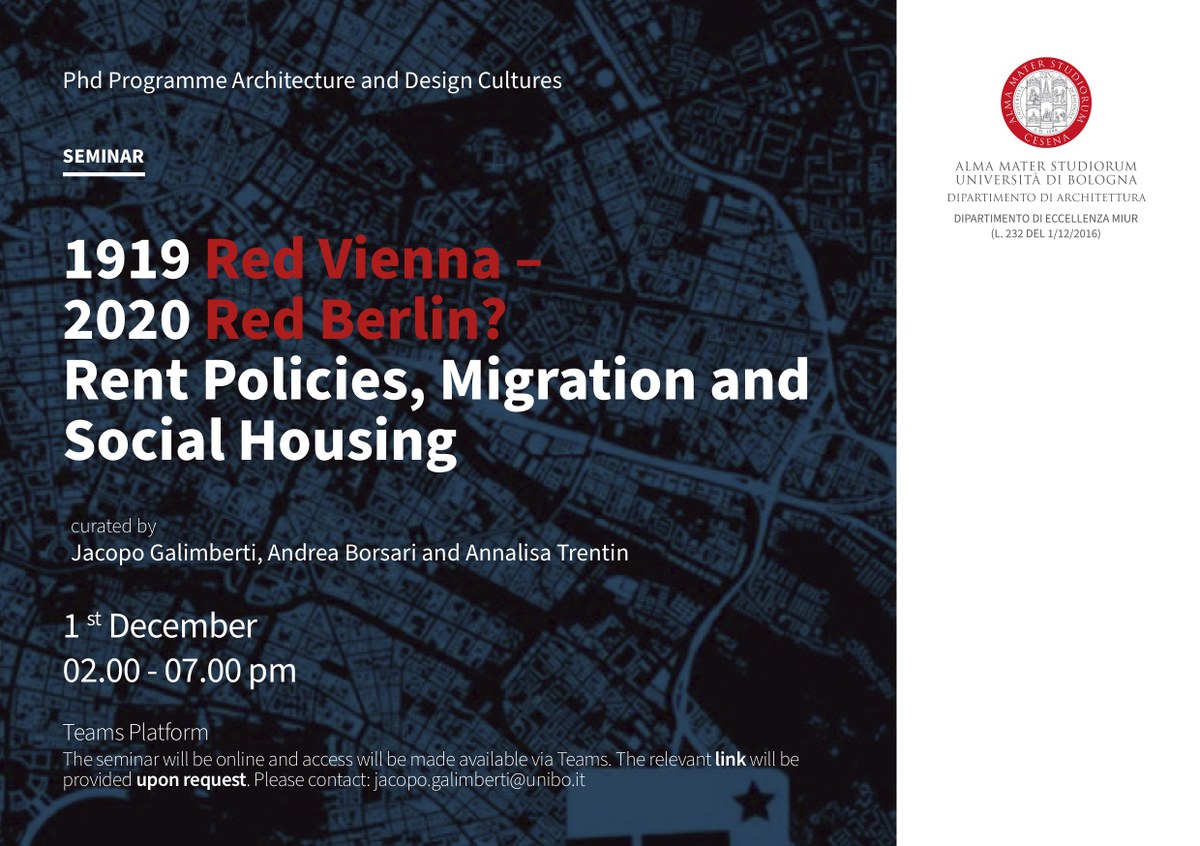1919 Red Vienna – 2020 Red Berlin? Rent Policies, Migration and Social Housing
-
Data: 01 DICEMBRE 2020 dalle 14:00 alle 19:00
-
Luogo: Online
-
Tipo: Seminari

curated by Jacopo Galimberti, Andrea Borsari and Annalisa Trentin
crediti: 1
Teams Platform : The seminar will be online and access will be made available via Teams. The relevant link will be provided upon request. Please contact: jacopo.galimberti@unibo.it
seminar organised as part of the teaching of History and aesthetic of industrial products for the degree course in Design of the Department of Architecture – Unibo, in collaboration with the PhD Programme “Architecture and Design Cultures” (University of Bologna) and the Collège international de philosophie (Paris).
The past three decades have witnessed skyrocketing rent prices in many European capital cities. Long the locus of class divides but also of social mobility, some metropolises now seem poised to become dystopian places, unaffordable even for the middle classes. This shift has been particularly severe and rapid in Berlin. Because of the city’s unique historical circumstances, the cost of rent in the German capital had remained well below that of comparable European metropolises. Yet the situation has dramatically changed in the past 10 years; rent payments have doubled, generating manifold social problems and unprecedented protests.
In January 2020, the Senate of Berlin passed a law, popularly called Mietendeckel, that freezes current rent prices for five years in an attempt to limit the negative consequences of gentrification. The constitutionality of this rent cap has been challenged in court, and the final verdict is due in November 2020. Regardless of the constitutional court’s decision, we would like to examine this law, its political meaning, potential viability in other contexts, and the historical precedent that has been foregrounded as an exemplar by some of its propo- nents, “Red Vienna”, a programme of municipal socialism that was embraced by the city of Vienna from 1919 until the ban of the Socialist Party in 1934.
Mietendeckel has been the result of the joint effort of massive protests, grassroots militance and official politi- cs. In particular, a far-left group called the Interventionistische Linke (IL) has played a crucial role in the law’s promotion. One of its militants will be with us in Bologna to present the debates that resulted in the creation of this law, the rationale behind it and the significance of Red Vienna for the campaign. An international group of four scholars who have explored architecture and social housing in Vienna, Berlin and Bologna will join
the debate, problematising this comparison, highlighting similarities and differences, and discussing social housing projects, as well as their attendant rent policies, that have shaped areas of Berlin.